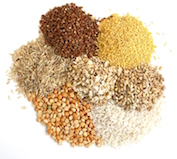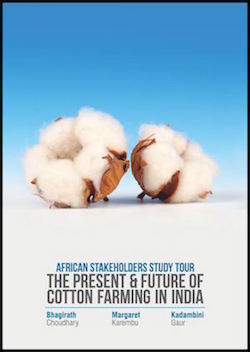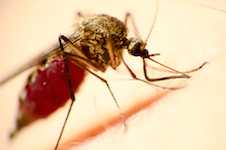New Global Food Policy Report Says How We Feed the World is Unsustainable |
|
 The 2016 Global Food Policy Report, the flagship publication of the International Food Policy Research Institute (IFPRI) has been released on March 31, 2016. The report provides an in-depth look at major food policy developments and events in the past year, and examines key challenges and opportunities for the coming year. The 2016 Global Food Policy Report, the flagship publication of the International Food Policy Research Institute (IFPRI) has been released on March 31, 2016. The report provides an in-depth look at major food policy developments and events in the past year, and examines key challenges and opportunities for the coming year.
The report points out that today's global food system has major weaknesses: nearly 800 million people are left hungry, one-third of the human race is malnourished, over half of some crops never make it to the table, and the planet is ravaged from environmentally unfriendly agricultural practices. It also states that as the global population is expected to soar exponentially in the coming years, various ways must be examined to feed more people efficiently and sustainably, while combatting climate change. "The Sustainable Development Goals task us all with the challenge of eradicating hunger and undernutrition in 15 years or less," said IFPRI Director General Shenggen Fan. "We must promote and support a new global food system that is efficient, inclusive, climate-smart, sustainable, nutrition- and health-driven, and business-friendly in order to ensure that no one goes to sleep hungry." The 2016 report takes a look at the latest research on opportunities and challenges the world will face in achieving multiple SDGs. The report includes chapters on climate change and smallholder farmers, sustainable diets, food loss and waste, and water management. For more details, read the news release at the IFPRI website, where a download link to the report is available.
|
|
|
|
|
In Biotech Breakthrough, Scientists Discover Reverse Photosynthesis |
|
 Researchers at the University of Copenhagen have discovered a natural process that they describe as reverse photosynthesis. They have discovered that monooxygenases, natural enzymes also used in industrial biofuel production, multiply their effectiveness when exposed to sunlight. The process is called reverse photosynthesis because the enzymes use atmospheric oxygen and the Sun's rays to break down and transform carbon bonds, in plants among other things, instead of building plants and producing oxygen that is typically understood with photosynthesis. Researchers at the University of Copenhagen have discovered a natural process that they describe as reverse photosynthesis. They have discovered that monooxygenases, natural enzymes also used in industrial biofuel production, multiply their effectiveness when exposed to sunlight. The process is called reverse photosynthesis because the enzymes use atmospheric oxygen and the Sun's rays to break down and transform carbon bonds, in plants among other things, instead of building plants and producing oxygen that is typically understood with photosynthesis.
"This is a game changer, one that could transform the industrial production of fuels and chemicals, thus serving to reduce pollution significantly," says University of Copenhagen Professor Claus Felby, who leads the research. David Cannella, a fellow researcher and discoverer, explains that the discovery means that by using the sun, biofuels and biochemicals for things like plastics can be produced faster, at lower temperatures and with enhanced energy-efficiency. He added that some of the reactions, which usually take 24 hours, can be achieved in just 10 minutes by using the sun. Read more about this research at the University of Copenhagen website.
|
|
|
|
|
African Stakeholders Study Tour Strengthens India-African Collaboration in Cotton and Textile Sector
|
|
 The African Stakeholders Study tour report The Present & Future of Cotton Farming In India, captures the experiences and lessons learned from a week-long seeing-is-believing study tour by a delegation of six East and Southern African cotton growing countries to Bt cotton hybrid fields in India from September 27- October 2, 2015. The study tour was aimed at allowing the delegates to visit and witness the performance of Bt cotton hybrids in farmers' fields and study the cotton value chain in India. Participants included policy makers, regulators, chief executives of cotton boards, researchers, journalists, consumer representatives and private sector players who interacted with officials from both public and private sector institutions within the cotton sub-sector value chain and witnessed first-hand the exemplary performance of Bt cotton hybrids in farmers' fields. They learned about the benefits and challenges those charged with the responsibility of deploying the technology in India have encountered. The African Stakeholders Study tour report The Present & Future of Cotton Farming In India, captures the experiences and lessons learned from a week-long seeing-is-believing study tour by a delegation of six East and Southern African cotton growing countries to Bt cotton hybrid fields in India from September 27- October 2, 2015. The study tour was aimed at allowing the delegates to visit and witness the performance of Bt cotton hybrids in farmers' fields and study the cotton value chain in India. Participants included policy makers, regulators, chief executives of cotton boards, researchers, journalists, consumer representatives and private sector players who interacted with officials from both public and private sector institutions within the cotton sub-sector value chain and witnessed first-hand the exemplary performance of Bt cotton hybrids in farmers' fields. They learned about the benefits and challenges those charged with the responsibility of deploying the technology in India have encountered.
The strong collaboration and stewardship measures put in place, managed by the Government of India, Universities and private sector players were impressive. Among the take-home messages were the need for a strong extension service to support Bt cotton farmers, the concerted efforts of different players to sustain adoption and the wide range of varietal choices of Bt cotton hybrids that Indian farmers have at their disposal due to an elaborate breeding program. It is our hope that the Indian model of holistic technology application in the cotton sector that has made India number one in world cotton production will inform decision makers in Africa for the benefit of millions of farmers who depend on the crop for their livelihood. The visit was organized by the ISAAA AfriCenter and the South Asia Biotechnology Center (SABC-India) in partnership with COMESA/ACTESA, the Open Forum on Agricultural Biotechnology (OFAB-Kenya) and the Program for Biosafety Systems (PBS). Partial support was also received from the United States Department of Agriculture (USDA) and Mahyco Seeds Company.
For more on the report and future biotech study tour inquiries, contact: Dr. Margaret Karembu at mkarembu@isaaa.org and Mr. Bhagirath Choudhary at bhagirath@sabc.asia.
|
|
|
|
|
Zika Virus Structure Revealed by Researchers |
 A team of researchers from Purdue University led by Richard Kuhn, director of the Purdue Institute for Inflammation, Immunology and Infectious Diseases (PI4D), with Michael Rossmann, Purdue's Hanley Distinguished Professor of Biological Sciences has determined the structure of the Zika virus, which reveals insights critical to the development of effective antiviral treatments and vaccines. The research team identified regions within the Zika virus structure where it differs from other flaviviruses. A team of researchers from Purdue University led by Richard Kuhn, director of the Purdue Institute for Inflammation, Immunology and Infectious Diseases (PI4D), with Michael Rossmann, Purdue's Hanley Distinguished Professor of Biological Sciences has determined the structure of the Zika virus, which reveals insights critical to the development of effective antiviral treatments and vaccines. The research team identified regions within the Zika virus structure where it differs from other flaviviruses.
|
|
|
|
|
|
|

|
A biweekly update on gene editing research, regulations, and impact
produced by ISAAA Inc. |
| |
|
|

|
| A monthly update on gene drive research and development provided by ISAAA in collaboration with the Outreach Network for Gene Drive Research |
| |
|
|
|
|
GM APPROVAL UPDATES |
- The Philippines approved the canola event LBFLFK for food, feed, and processing.
- The Philippines approved the cotton event GFM cry1A for commercial cultivation.
- Brazil approved the wheat event HB4 for commercial cultivation.
- The Philippines approved the soybean event GMB 151 for food, feed, and processing.
- The Philippines approved the eggplant event EE-1 for cultivation
- The USA approved the canola event MON94100 for food and feed.
|
|
|
|
| Biotech Updates is a weekly newsletter of ISAAA, a not-for-profit organization. It is distributed for free to over 22,000 subscribers worldwide to inform them about the key developments in biosciences, especially in biotechnology. Your support will help us in our mission to feed the world with knowledge. You can help by donating as little as $10. |
|
|
|
|